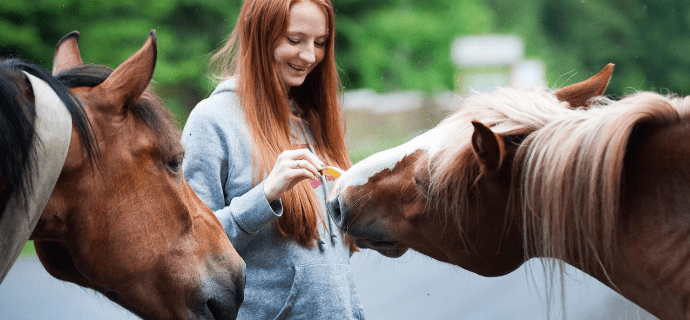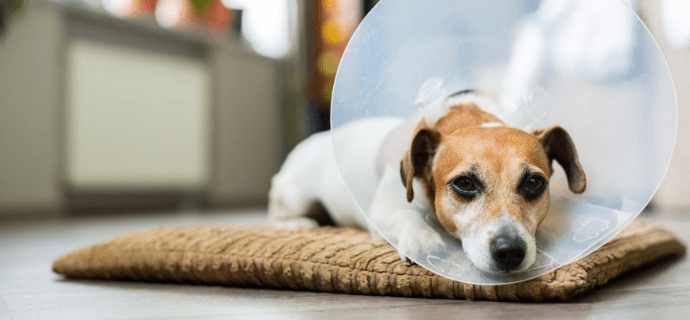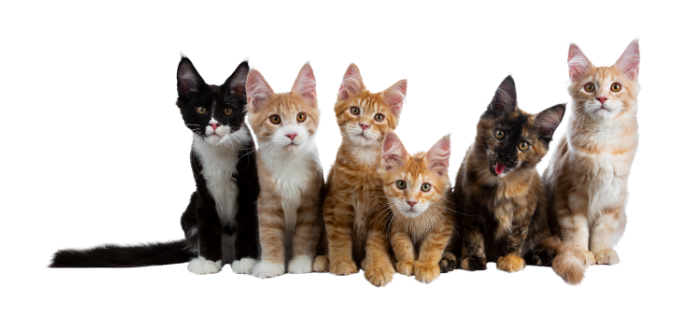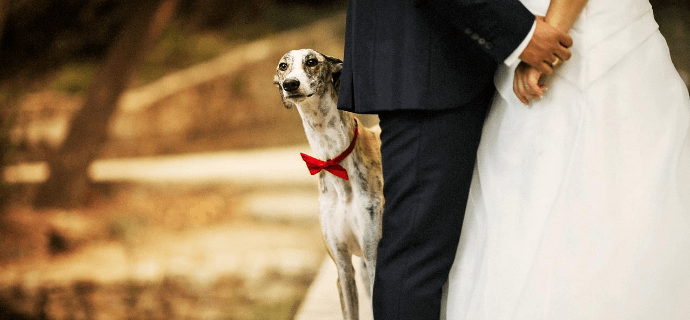Three Ways To Leave Your Dog Smelling Great
Thanks to CleanerPaws.com for this guest blog
Naturally dogs keep their hair and skin in good condition by licking, scratching, dry bathing (rolling in dust) or simply by getting wet. Saliva contains natural antiseptics, while licking and scratching are normal beneficial activities, when performed in moderation.
Rolling and rubbing are ways in which the dog massages its skin, removes debris from areas that cannot be reached by tongues or paws and activates its sebaceous glands (their secretions also have antimicrobial properties).
No matter how much your dog cleans itself, it still has its distinctive, funky smell. The reason why dogs smell like, well…dogs is that they do not sweat like we do.
Dogs perspire from their paws and emit a light perspiration from their hair follicles. That perspiration has a chemical scent, individual to the dog. Maybe all dogs smell the same to us, but they do not smell the same to each other.
Additionally, when the dog’s normal skin microorganisms like bacteria and yeasts are influenced by some external factors, many volatile odoriferous compounds are released.
- BATH YOUR DOG
 The best way for keeping your furry friend, odour free is the old-fashioned bathing and grooming. For this purpose, you can use commercially available or home-made shampoos. Most home-made shampoos consist of water and essential oils, while you can also find organic grooming products that have a natural base. In fact, these are some of the best smelling dog shampoos available and offer you another line of defence in your battle against unwanted dog scents.
The best way for keeping your furry friend, odour free is the old-fashioned bathing and grooming. For this purpose, you can use commercially available or home-made shampoos. Most home-made shampoos consist of water and essential oils, while you can also find organic grooming products that have a natural base. In fact, these are some of the best smelling dog shampoos available and offer you another line of defence in your battle against unwanted dog scents.
Pro Tip: Since home-made shampoos do not contain preservatives, they should be used within a week or two after they are made.
However, too much bathing can be more harmful than beneficial. You can prolong the period between two baths by practicing some of the following methods:
- Brushing your dog regularly. Everyday dirt, dander and allergens from your dog’s coat, all contribute to a stinky odour. The best way to remove them is by daily brushing. Since dead hair and skin cells lead to bad odour, make sure to increase the brushing or combing during your dog’s shedding period.
- Wiping your dog’s coat with dog wipes or baby wipes. Both dog and baby wipes are gentle enough for the dog’s delicate skin. They are pre-moistened with gentle cleansers, conditioners, and deodorizers and therefore they can freshen the skin and coat with very little effort. Additionally, many dog wipes contain natural ingredients such as Aloe Vera to supplement and condition the fur, are free of additives and have adjusted ph. Wet wipes offer an easy and quick alternative to a daily bath. Just make sure to avoid wiping the area around the eyes.
- Using a dry shampoo (powder). Dry dog shampoos come as sprays or powders and are designed to be rubbed into the skin. They help eliminating the grease and odour from your dog’s hair without the hassles or risks associated with a traditional bath. They are easy to apply and remove. Today, there are many commercially available dry shampoos. However, if you want you can use a home-made dry shampoo from baking soda and corn-starch. Baking soda and corn-starch are very useful at removing everyday dog smell. Whatever dry shampoo, you choose, the drill is the same. Simply rub the powder into your dog’s coat, wait for several minutes and brush the dry shampoo out of its hair. Keep in mind that using too much dry shampoo will absorb more than just the excess oils and will effectively destroy your dog’s natural antibacterial barrier. You also risk clogging the hair follicles, stunning the hair growth and causing build-up of environmental toxins on your dog.
- Using vinegar for a quick rinse. An effective solution for making your dog smell good is to rinse him with vinegar. Once this strong-smelling product dries, its odour is gone, along with any other unpleasant smells on your dog. Combine 2 cups of distilled white vinegar with 4 gallons of water. Wet the dog to the skin with plain water and saturate its coat with the mixture. Dry your dog without rinsing off the vinegar and he’ll be left smelling great.
- TAKE CARE OF OTHER SOURCES OF BAD SMELL
Ear infections, anal sacs infections and bad oral hygiene may also be the cause why your dog stinks.
Ears
Sometimes the dog smell is coming from your dog’s ears. Check your dog’s ears for odour, inflammation and wax build-up. If there is too much wax, remove it with a proprietary ear wax remover or simply wipe the inside of the ear with a cotton ball moistened with mineral oil. If your dog has excess hairs inside his ear canal, you can pluck them with tweezers.
Tip: Since you do not want to go too far and damage the ear canal, never use cotton swabs for cleaning your dog’s ears.
Anal sacs
Clogged anal sacks can make your dog stink more than anything else. Unfortunately some breeds are especially susceptible to problems with the anal glands. Avoid problems in this region by checking the sacs regularly. If you suspect your dog is having problems with them, have them checked by a veterinarian.
If you are not disgusted by what comes out of the anal gland, you can learn how to empty them on your own. It is simple and there are many educational tutorials available online.
Teeth
Another obvious source of dog odour is the bad doggy breath. Frequent teeth brushing will keep both teeth and gums healthy and therefore your dog’s breath will be pleasant. You should use a small toothbrush loaded with dog toothpaste, and brush in small circles to loosen plaque and eliminate odour.
Never use human toothpaste since they contain artificial sweeteners that can be toxic for your dog.
- KEEP YOUR DOG’S BED CLEAN
If your dog sleeps in a smelly bed, your battle against dog odours is lost. To keep your dog odour-free and clean, you should wash its bedding regularly. By regularly, we mean at least every other week. Before washing the bed, make sure to pre-clean it by vacuuming the excess hairs. Instead of vacuuming, you can use a lint brush.
Always choose dog beds with easily removable and machine washable covers and cushions. Choosing quick drying fabrics discourages mould growth. For the washing, it is recommended to use gentle, natural and fragrance-free detergents.
Tip: If you want to increase the period between two washings and prevent fast wearing out, you can flip or rotate the cushions.
In some cases, bad dog odours may be a sign of minor health issue such as gum disease and skin infection. In other cases, it may indicate serious systemic illness such as diabetes and kidney disease. If your dog’s smell different than usual, ask your veterinarian to examine your stinky pooch. He will give your dog a thorough check-up and hopefully rule out medical issues.
Filled under: Dog health, Dog Sitting, Dogs








